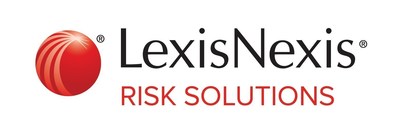New Insights from LexisNexis Risk Solutions Highlight the Latest Trends for Breast and Colon Cancer Diagnoses and Screenings
Rhea-AI Summary
LexisNexis Risk Solutions released new insights on breast and colon cancer screening trends from 2021-2023. Mammogram screenings increased significantly, with a 10.3% rise among people in their 40s and a 12.5% increase for those in their 30s. Breast cancer diagnoses showed notable increases, particularly among people in their 30s (4% increase) and over 70 (5.7% increase).
Following USPSTF's updated guidelines lowering the recommended age for colon cancer screenings to 45, colonoscopies in the 45-50 age group surged by 90%. While at-home screening tests generally decreased, their utilization among people in their 40s increased significantly, with DNA-based tests up 30.5% and FIT up 19.7%.
Positive
- Significant increase in mammogram screenings across younger age groups
- 90% increase in colonoscopies for 45-50 age group following new guidelines
- 30.5% increase in DNA-based tests and 19.7% increase in FIT tests among people in their 40s
Negative
- Overall decline in at-home, non-invasive colon cancer screening tests
- 5.7% increase in breast cancer diagnoses among people over 70, representing over 100,000 additional cases
News Market Reaction
On the day this news was published, RELX declined 0.52%, reflecting a mild negative market reaction.
Data tracked by StockTitan Argus on the day of publication.
Findings show which age groups are seeing the biggest increases
Even though the USPSTF didn't officially lower the age recommendation for breast cancer screenings from 50 to 40 until April 2024, mammograms among adults in their 40s have been trending up for the last three years. De-identified medical claims data from LexisNexis® MarketView™ show a
The data analysis also revealed an increase in breast cancer diagnoses with the largest increases being among people in their 30s and people over 70. Breast cancer diagnoses among people in their 30s increased by
USPSTF lowered the recommend age for colon cancer screenings from 50 to 45 in May 2021, and the data shows this new age group is responding to the updated guidance. Colonoscopies among people between 45 and 50 years old increased
Additionally, the analysis examined the latest utilization trends of at-home, non-invasive colon cancer screening tests, including stool DNA-based tests and a fecal immunochemical test (FIT). Overall, these tests are trending down, indicating a potential pullback from high pandemic-driven utilization. However, utilization among people in their 40s is up
"These insights demonstrate the importance of timely and consistent population health monitoring. Using up-to-date claims data empowers healthcare organizations to examine policy change, healthcare delivery trends, and more effectively design programs that improve engagement and participation in preventive care, such as cancer screenings," said Diana Zuskov, associate vice president of healthcare strategy and innovation at LexisNexis Risk Solutions. "New innovations, such as non-invasive direct to consumer testing, show promise in improving the patient experience while also expanding reach and access to preventive care. Timely data on how patients are impacted by changing guidelines and healthcare innovation is critical to removing barriers to care and addressing health disparities among groups with limited access to care."
Click here to view the complete data analysis.
About LexisNexis Risk Solutions
LexisNexis Risk Solutions harnesses the power of data and advanced analytics to provide insights that help businesses and governmental entities reduce risk and improve decisions to benefit people around the globe. We provide data and technology solutions for a wide range of industries including insurance, financial services, healthcare and government. Headquartered in metro
Media Contact:
Syed Shabbir
Sr. Manager, Corporate Communications
LexisNexis Risk Solutions
816-572-7709
syed.shabbir@lexisnexisrisk.com
![]() View original content to download multimedia:https://www.prnewswire.com/news-releases/new-insights-from-lexisnexis-risk-solutions-highlight-the-latest-trends-for-breast-and-colon-cancer-diagnoses-and-screenings-302290541.html
View original content to download multimedia:https://www.prnewswire.com/news-releases/new-insights-from-lexisnexis-risk-solutions-highlight-the-latest-trends-for-breast-and-colon-cancer-diagnoses-and-screenings-302290541.html
SOURCE LexisNexis Risk Solutions










